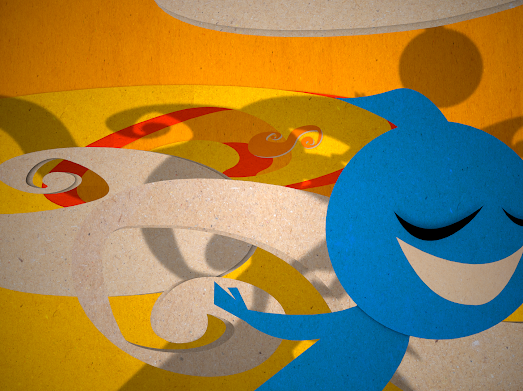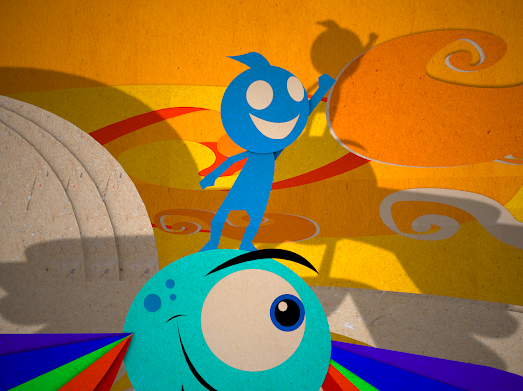Seeing through the Imaginative Eye of the Blind


Pity is often the first response people have when they meet a disabled person. Pity because the individual may not be able to navigate spaces efficiently. Pity that they may never fully be able to appreciate the beauty of musical melodies. Pity that they cannot see the diversity of the natural world. It's a worthy exercise imagining life from the perspective of disabled persons. It helps us to build our empathic muscles, but we can miss nuances about how disabled people navigate life. With "Darwin the Dreamer" - a short film by Don Dixon, viewers get to explore some of those nuances through a thoughtfully crafted children's story.
"Darwin the Dreamer" is a five-minute animated short that follows Darwin, a young boy who is blind. Despite his blindness, he uses his imagination to see, envisioning curious things like a one-eyed bird with magical wings. Darwin is simple and happy, exploring his surroundings using his senses. He touches a tree trunk to feel its texture, and he keeps his head held high to listen for birds flying by. His carefree adventures are interrupted only by a bully that targets and torments him, forcing Darwin to find and summon the bravery to confront his antagonist.

The film is storybook-inspired. It presents a colorful world of bright pastels and lollipop trees. Curvy white clouds decorate the sky. The visual elements are simple, suitable for young children to quickly engage with and digest. Each scene looks like a layering of paper cutouts that are orchestrated to create movement. Interestingly, though each frame appears to be a constructed paper tapestry, there is still a sense of three-dimensional depth.
A kind but authoritative narration by Peter Baker walks viewers through Darwin's story and puts the themes of the film front and center. The simple rhyming scheme of the narration delivers the tale in an easy and predictable way - making it suitable for young audiences. Nela Ruiz's gentle score adapts to each turn of the story and emotionally guides viewers through the film.
While "Darwin the Dreamer" features a simple story and simple aesthetics, Don Dixon’s direction manages to elevate its core themes with the power of animation. In this context, the medium provides a meta commentary since it could be interpreted that it is through this imaginative lens that Darwin sees the world with his mind's eye. Against the backdrop of the film's colorful styling, the idea of seeing with your imagination rather than with your natural sight feels liberating. Whereas sighted people get bored with the mundanity of the normal world, imaginative seeing can interpret the visual world in expansive ways.
"Darwin the Dreamer" achieves what many works featuring disabled characters are unable to do - it respectfully reveals a positive nuance inherent in the disability and empowers the disabled character. For that achievement alone, this short is worth seeing. Beyond that, the artistry behind the film signals that Don Dixon and his creative team have exciting potential for future projects.
"Darwin the Dreamer" is currently making its way through the festival circuit.